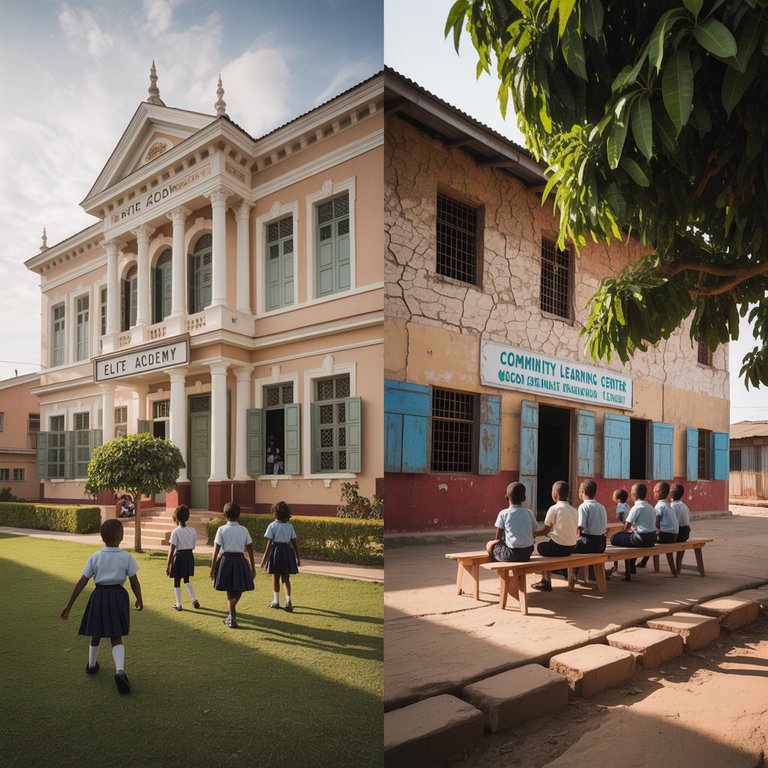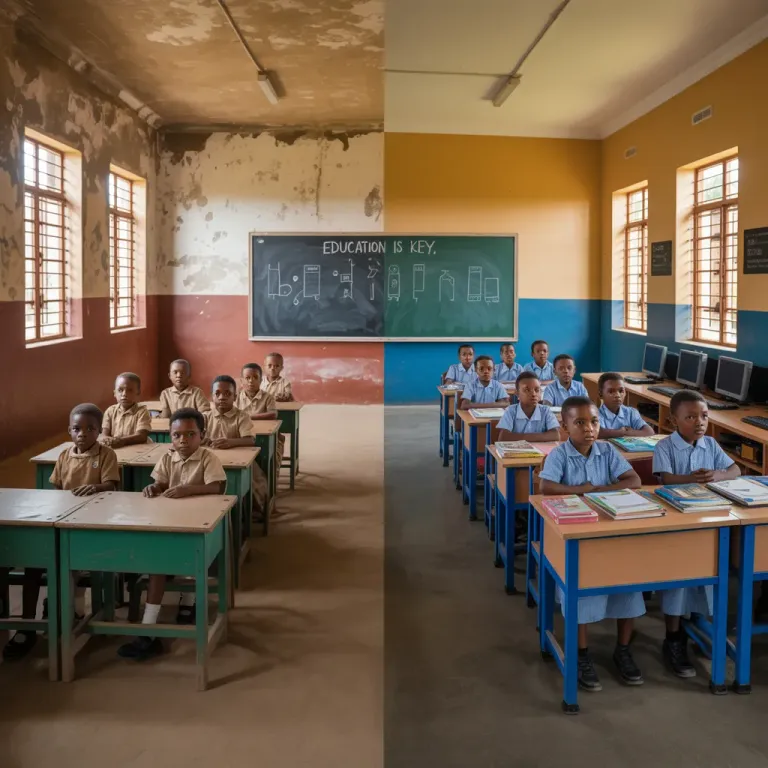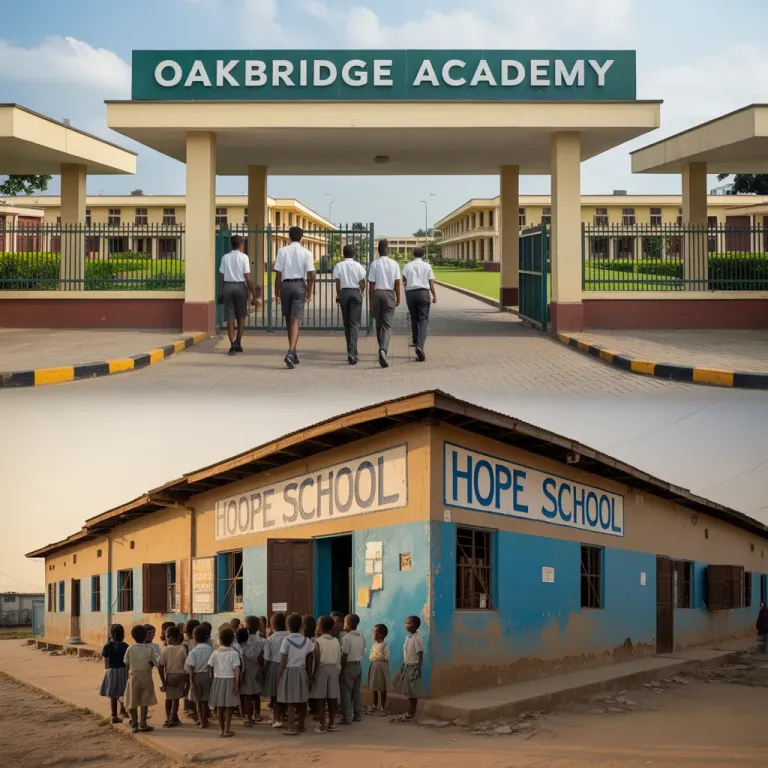Ups And Downs of Nigeria's Educational System

Early in the morning, as early as 5 O'clock, we would wake up from sleep, then do our house chores before proceeding to prepare for school. In our time, school was compulsory for every child, even the househelps.
The government of my country was magnanimous enough to make education free at primary and post-primary school levels. This is the reason every child of school age makes sure to get a primary and secondary school education. This has accounted for the high record of enrolment of school children in Nigeria. Though, there are parts of the country where education is not considered as a tool for national development and poverty reduction.
In the 1980s when I was in primary school, our government operated the 6-3-3-4 system of education. This system of education is referred to as Universal Primary Education (UPE). The system is aimed to ensure that an average Nigerian child gets a primary education where he or she is able to read and write. The understanding of the alphabet and numeracy is the basis for this system of education.
Hence, 6-3-3-4 is simply explained that a child must spend six (6) years in primary school, then, three (3) years in Junior secondary school (J.S.S) during which the child could attend a technical college or continue in a conventional secondary school based on the area of interest of the child. The next three (3) years is meant for senior secondary education where the child begins to prepare for post secondary school education. At the end of the last three years, the child gets to write an examination that qualifies him to write the university entrance examination. The last four in the code is the number of years the child gets to spend at the University.

Today, we operate the Universal Basic Education (9-3-4) system of education. The system is aimed at ensuring that the average Nigerian child passes through school for at least nine years which is a combination of primary education which is to last for six years and the three years of junior secondary school or technical school.
However, university education is not free in some states but there is no restriction to who cannot attend in as much as the individual meets up with the expected requirement for admission.
Both male and female children are treated and given equal opportunities to pursue their dream career. But in the northern part of Nigeria, the female gender is restricted from formal education. In recent times, that idea is going into extinction because of exposure and the observation that northern women have seen in women from other parts of the country who can become whatever they desire to be.
Recently, the slogan ”School is a scam” is making waves because most fellows thought that education is all about earning big. Hence, some folks who have made money through illegal means and who have not attended or earned a university degree see it as a scam and not necessary.
There are some problems that have made education in my country seem like a thug of war.
The first is that the government plays lip service to supporting education. In fact, education gets less than 10% of budgetary allocation in the fiscal policy of my country. This goes a long way to determine the amount of funding the education system gets annually.
Most schools are under-staffed too. It would amaze you that most schools do not have the required number of teachers that are needed to run the teaching of learners in schools.

Basic infrastructure like custom building, educational technology materials like smart board, audio-visual materials, instructional materials, electronic library, laboratories and so on are not available in most schools, higher institutions inclusive.
There is also the problem posed by poor staff remuneration. The teaching profession in my country is seen as a second class citizen profession. Graduates who teach in government owned schools earn less than $100 monthly whereas, most lawmakers who did not see the four walls of a university lecture theatre earn up to $10,000 to $12,000 monthly aside from some estacodes.
Until we have a sincere government who knows the basic roles of education in a developing nation, our education system may continue to wallow in muddy waters.
View or trade
LOHtokens.@mrenglish, You have received 1.0000 LOH for posting to Ladies of Hive.
We believe that you should be rewarded for the time and effort spent in creating articles. The goal is to encourage token holders to accumulate and hodl LOH tokens over a long period of time.
You provided a very detailed account of the evolution of the country's education system and made it clear how structural changes, government neglect, and regional inequalities impact access to and quality of education.
!PIZZA
!WINE
Many thanks, @crazyphantombr for checking this piece. Every nation has a peculiar way their lives and economies have evolved and education is not an exemption from this evolution.
Nigeria as a nation is evolving and the education department is still seeking an advanced model to suit our dreams and pursuits which account for the changes so far.
Thanks again for checking in.
$PIZZA slices delivered:
@crazyphantombr(2/15) tipped @mrenglish
Come get MOONed!
Most schools especially private schools are understaffed, I have a friend who teaches in a private school and only him handles 4 subjects.
To be fair, private schools in Nigeria is the hope that most people rely on to get the type.of education they desire for their wards. This is not to say however that there are no deficiencies here or there.